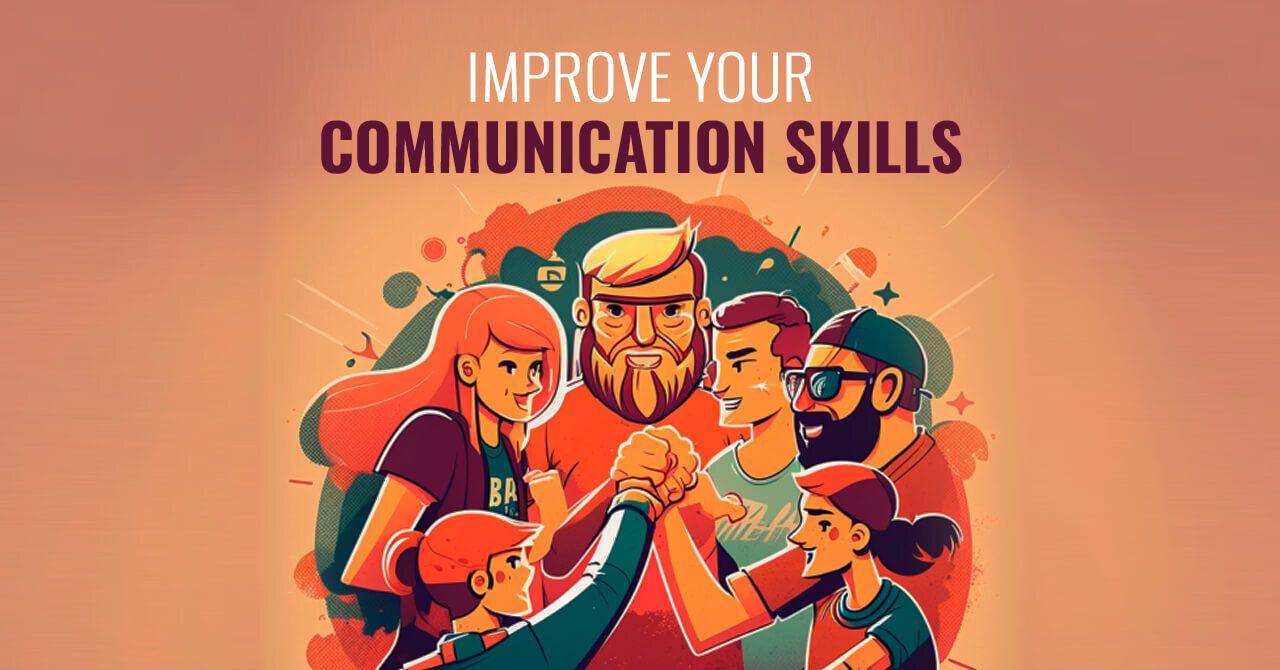
Tips That Will Help You Improve Your Communication Skills
Some of the key factors are to know how to listen and to communicate well and clearly, it will definitely help you express yourself better in everyday life situations.

Get a FREE guide!
Want to sound like a native English speaker?
Get our free PDF with top tips that work.

Check your email!
“How do I improve my communication skills?” This is a sentence that I have heard so many times before, and to be totally honest with you, it is not that hard. If you only follow these tips and guidelines.
Effective communication skills is a straightforward process. It allows you to express yourself and helps improve your personal as well as professional relationships. Some of the key factors are to know how to listen and to communicate well and clearly, it will definitely help you express yourself better in everyday life situations.
4 Skills Necessary for Effective Communication
Listening Skills
It all starts with active listening. If you only focus on how you’re expressing yourself, chances are big that you are not focused on what people bring to the table. Effective communicators use different listening styles. They make others feel heard and considered when they pay close attention.
Empathy
Understanding the feelings of those around you plays a big role in effective communication. To understand and relate to what someone else is feeling is called to Empathize. To have high emotional intelligence and demonstrate the ability to empathize builds a bond that will increase your ability to communicate.
Non-verbal Communication Skills
Effective communication relies on non-verbal cues. Being conscious of your body language and tone of voice will help to improve the message you are trying to bring forth, as well as your presentation skills.
Teamwork
The ability to be actively engaging in team building and collaborating with co-workers consistently is of utmost importance for building your business communication skills. The more you build strong relationships and get along with your co-workers in the workplace, the more effectively you will be able to communicate with them.
6 Skills to help improve your communication
Practice active listening
Always be a good listener. Engage with people by what they are saying by frequent replies and asking for follow-up questions to show you are paying attention and are interested.
Focus on non-verbal communication
Mastering non-verbal cues and signals helps prevent miscommunication and shows others your interest. When speaking to someone, be conscious of your body language and facial expressions. The first impression you make can be affected by non-verbal cues. (Maintain good eye contact, limiting your hand gestures, and having a good posture are just some of the important things to remember, as it goes a long way.)
Manage emotions
It is important to manage and express clear communication appropriately for your personal well-being. When strong emotions creep up in a professional setting, it can lead to bad communication and conflict.
Ask for feedback
Always ask for honest feedback from colleagues. Asking others for their advice on the improvement of your communication skills helps you better understand your work environment. Be willing to seek out other’s points of view and therefore create better relationships with your co-workers.
Practice public speaking
It may sound scary, but it is the best way to develop good communication skills. Great communicators can clearly articulate their feelings, whether it is to a large group of people or face-to-face with one person. Regularly speaking to groups of people will magnify your strengths and weaknesses. It forces you to develop great communication skills and habits.
Develop a filter
Effective communicators have developed social skills and are able to manage their thoughts and feelings toward others around them. Know when and how to explain the content in a different interpersonal manner. By using a developed filter, you can supplement techniques to maintain a level of consistency to avoid conflict.
















